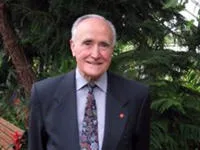The Law of God's Kingdom
The Bible proclaims that the Kingdom of God is coming to this earth. Every kingdom has a king and laws. In God’s Kingdom, Jesus Christ will be King, and God’s laws will be the law of the land—and what a wonderful difference that will make!
The Bible talks a lot about government—the right kind and the wrong kind. The wrong kind has produced all the evils and troubles in this world today. But the right kind is destined to bring peace and happiness to this world—and Christians are called to be a part of it!
This aspect of the Christian calling is summarized essentially in a passage in Revelation:
Those God calls must be converted, changed and, in fact, reconstituted before they are ever given such authority on earth.
“They sing a new song: ‘You [Christ, the Lamb of God] are worthy to take the scroll and to open its seals, for you were slaughtered and by your blood you ransomed for God saints from every tribe and language and people and nation; and have made them to be a kingdom and priests serving our God, and they will reign on earth” (Revelation 5:9-10, New Revised Standard Version).
This is surprising to many, and profound in its application. God is the Great King and Ruler of the universe. His children will by nature become kings and priests, ruling under Christ for a thousand years.
God will not give that authority to proud, self-serving men. Those whom God calls must be converted, changed and, in fact, transformed and glorified before they are ever given such authority on earth. All who are converted and attain the resurrection will come together in a moment, in the twinkling of an eye, at the last trumpet (1 Corinthians 15:52).
Keep in mind that though God’s Kingdom goes on forever, the millennial rule described in Revelation 20:4 is temporary. It will last only one thousand years! We should go into it knowing: 1) The very temporary nature of man and of this earth; and 2) The very eternal nature of God’s law of love.
Laws in motion
When I was working on aircraft carriers, my job was to keep aircraft flying. To do this one needs to understand how the engines provide thrust, and the wings provide lift. Two things apply: Newton’s Third Law of Motion (every force has an equal and opposite reaction) and the physical laws governing vacuum (in this case, pressure differences caused by the acceleration of air or gas through a restricted space).
It doesn’t matter whether you understand the application to flight; what matters is that we realize that there are laws governing these matters. We cannot see the laws, but we can see the results and we rely on them. We know that without these physical laws, nothing would work. The same applies to spiritual laws.
King David understood this and discussed it in Psalm 19. The first six verses explain how the reality of God’s law is clearly discerned in the physical creation, upheld by the power of God. The next four verses describe the spiritual aspects of the law that, when understood and applied, enhance interpersonal relationships between man and man, and man and God.
David then asks that God would give him the ability to see properly, and to be kept even from presumptuous and hidden sins.
Government throughout the Bible
It is interesting to note that much of the Bible relates to governance in some way or another. God inspired the Holy Scriptures to be written by men of practical experience.
Moses, who wrote the first five books of the Bible, was ruler over Israel when God formed that nation out of a group of slaves after He delivered them from Egypt. Moses had been taught first in the household of Pharaoh, as a son in that house, and as a prince in his own right. And then God gave him some very different training up on the hillsides with the sheep for 40 years!
After Moses, Joshua became governor of Israel, and the record is written in the book bearing his name. Although Israel was a theocracy, the priesthood did not rule. The priesthood and all the people were subject to Joshua. Joshua, in turn, attended at the tabernacle and continued to be taught—instructed in the Word of God—season by season as the feasts came around, and Sabbath by Sabbath.
After Joshua, the judges—who operated in much the same way—governed Israel. But over time the people increasingly began “doing their own thing.” The law was diluted and authority diminished. The common people came to recognize the fact, because it was they who suffered most at the hands of judges, priests and rich men of the land who bent the law to serve themselves. And so the people cried out for a king, much to Samuel’s dismay.
God gave them kings—first of all Saul and then David and Solomon, as well as many other succeeding kings. We read the records of their doings in 1 and 2 Kings and 1 and 2 Chronicles.
Two of these kings, David and Solomon, wrote most of four more books of the Bible—Psalms, Proverbs, Ecclesiastes and the Song of Solomon.
Since God is love, why would anyone imagine doing away with God’s law? Shall we do away with love?
Later, after the 10 tribes of Israel went into captivity, they were dispersed. But following Judah’s captivity, many of the Jews returned to the land under leaders such as Nehemiah, whom Artaxerxes appointed as governor. Records of this time under gentile kings are found in the books of Ezra and Nehemiah. Esther is also concerned with this time in history. The book chronicles the queen’s intervention on behalf of her Jewish people.
Daniel, while he yet served in the Babylonian and Persian courts, gave detailed prophecies regarding the coming of the King and the times of His return! Daniel also recorded some good illustrations of the contrary ways of rulership in this world.
And what of the prophets? They were not kings, governors or rulers, but they were sent to the governments of the nations, usually to the kings in particular, but also to the priests, the leaders who at times were leading the people astray. They were sent to straighten things up, to warn of future consequences and to deliver God’s Word to the kings and priests. They often suffered because of their ministry, including being thrown out of town or executed for their word.
Ultimately, events led to the birth of Christ, who was an heir to the throne of David of the house of Judah. He came preaching the gospel of the Kingdom of God, into which we are called.
In our hearts and minds
The law must yet be written in the minds and on the hearts of mankind.
Jesus Christ, quoting from Deuteronomy (which He did often), said that man shall not live by bread alone, but by every word that proceeds from the mouth of God (Matthew 4:4). Our Father wants us to be completed, to become perfect. The law of God helps steer us to that. The law must yet be written in the minds and on the hearts of mankind (Hebrews 8:10; Jeremiah 31:33). This is not merely intellectual, but emotional and loving.
The two cardinal principles of God’s law are love—love of God and love of fellow man (Matthew 22:37-40; Romans 13:9-10). Since God is love (1 John 4:8), why would anyone imagine doing away with God’s law? Shall we do away with love? The saints are called to help administer God’s law of love, as rulers on this earth for a thousand years—and beyond!





